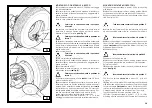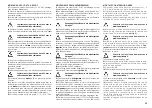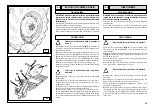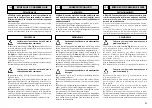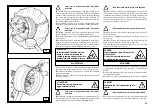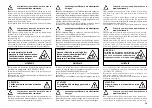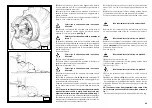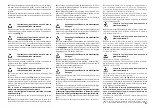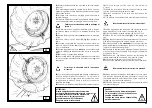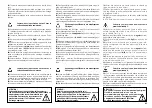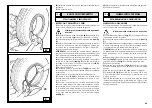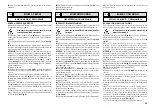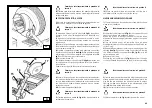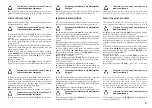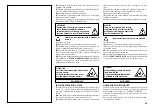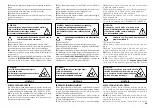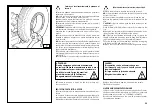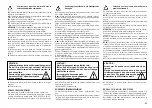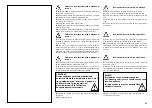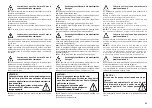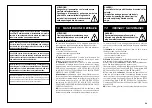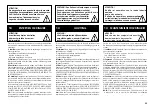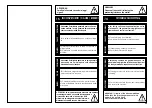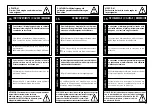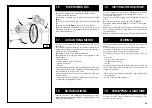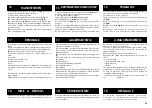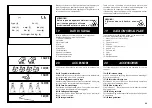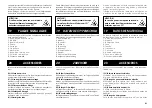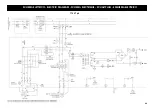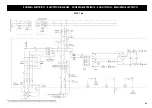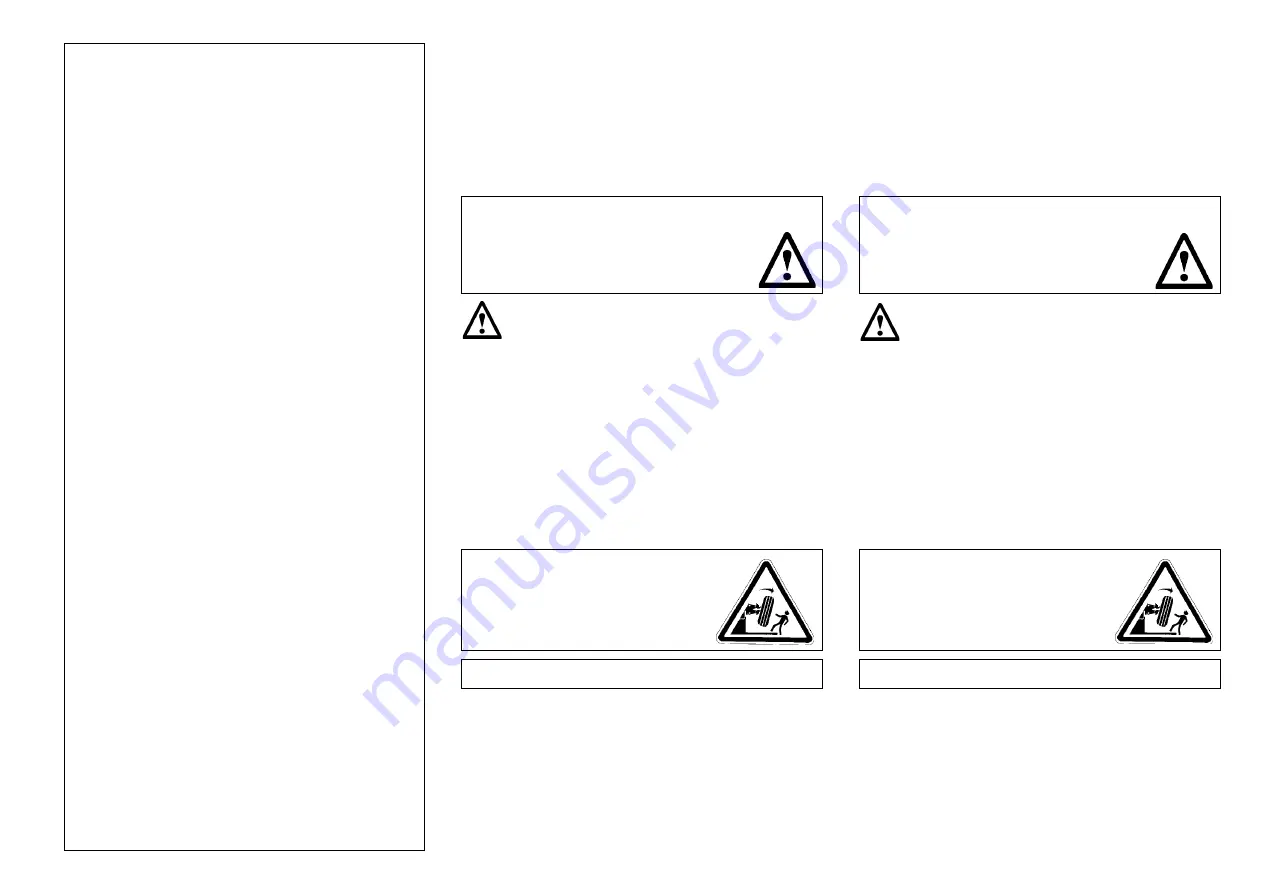
12)
Abbassare l'autocentrante fino a che il pneumatico non
appoggi sulla pedana.
13)
Traslare la pedana verso l'esterno fino a sfilare il pneumatico
(con il cerchietto attaccato) dal cerchio.
14)
Rimuovere il cerchio dall'autocentrante.
15)
Posizionare il pneumatico sulla pedana con il cerchietto
rivolto verso l'autocentrante.
16)
Bloccare il cerchietto sull'autocentrante agendo come
descritto per il BLOCCAGGIO DELLA RUOTA.
12)
Lower the spindle until the wheel is resting on the plat-
form.
13)
Move the platform towards the outside until the tyre to-
gether with the split ring comes completely off the rim.
14)
Remove the rim from the spindle.
15)
Position the tyre on the platform with the splint ring turned
towards the spindle.
16)
Clamp the split ring on the spindle as explained in the sec-
ATTENZIONE:
Il pneumatico non è fissato al cerchietto in modo
sicuro. Eventuali sollecitazioni durante il
posizionamento e/o il bloccaggio potrebbero
causarne il distacco e la conseguente caduta.
Portarsi con la colonnetta mobile in posizione di
lavoro D.
17)
Sollevare la ruota.
18)
Riportare il braccio porta utensili in posizione di lavoro.
19)
Posizionare l'autocentrante in modo che il disco stallonatore
risulti in corrispondenza del tallone del pneumatico.
20)
Ruotare l'autocentrante e contemporaneamente avan-
zare con il disco stallonatore fino alla completa fuoriuscita del
pneumatico dal cerchietto.
N.B.:
E' possibile evitare questa doppia operazione di stallona-
tura utilizzando la
COPPIA DI MORSETTI 136/90
(disponibile a
richiesta), che consente di fissare il cerchietto al cerchio e di
stallonarli contemporaneamente.
DANGER!
The tyre is not attached to the split ring
completely safely. Any strain on it during
positioning or clamping operations could
cause it to detach and fall.
17)
Lift the wheel.
18)
Move the tool carrier arm back to its work position.
19)
Position the spindle so that the bead breaker disk is lined
up with the bead.
20)
Turn the spindle and move the disk forward until the tyre
comes completely off the split ring.
NB:
This double bead breaking procedure can be eliminated by
using the
PAIR OF CLAMPS 136/90
(optional) that fix the split-ring
to the rim so that they are broken out at the same time.
ATTENZIONE!
La fuoriuscita del pneumatico dal cerchio ne
causa la caduta.
Verificare sempre che nessuno si trovi
accidentalmente nell'area di lavoro.
DANGER!
When the beads come off the rim,
the wheel will fall.
Check to make sure there are no
by-standers in the work area.
MONTAGGIO
MOUNTING
RUOTE CON CERCHIETTO A 3 PEZZI
1)
Portare il braccio porta autocentrante in posizione di fuori
lavoro. Se il cerchio è stato smontato dall'autocentrante ri-
bloccarlo come descritto nel paragrafo "BLOCCAGGIO DELLA
RUOTA".
N.B.:
Se la ruota ha la camera d'aria è necessario posizionare il
cerchio con l'asola per la valvola in basso (a ore 6).
2)
Lubrificare i talloni del pneumatico e il cerchio con apposita
WHEELS WITH 3-PIECE SPLIT-RINGS
1)
Move the tool carrier arm to its non-working position. If the rim
has been removed from the spindle, put it back on the spindle
as described in the section on “CLAMPING THE WHEEL”.
If the tyre is tubed, position the rim with the valve slot at the
bottom (6 o’clock).
2)
Lubricate both beads and the rim with tyre manufacturer
recommended lubricant.
Take the mobile control unit to work position D.

